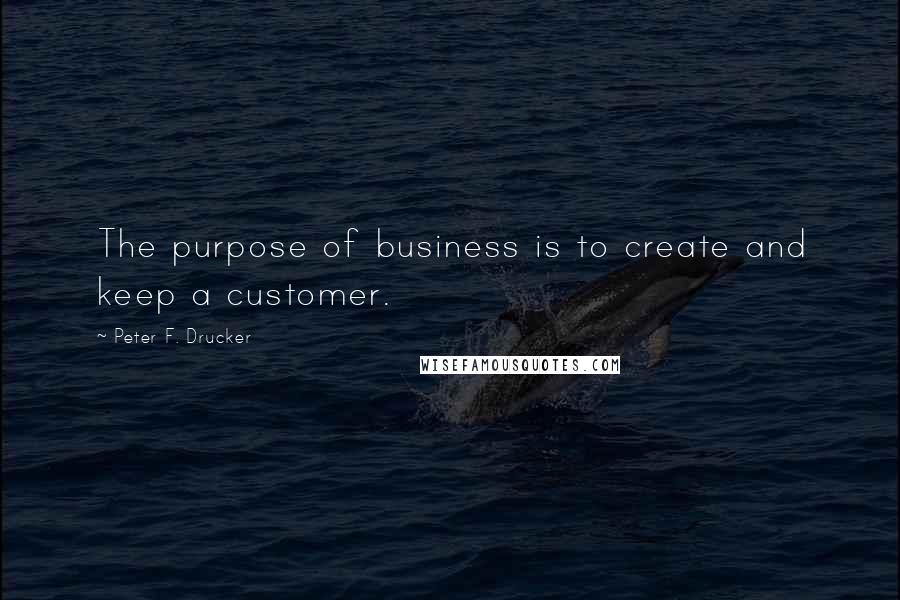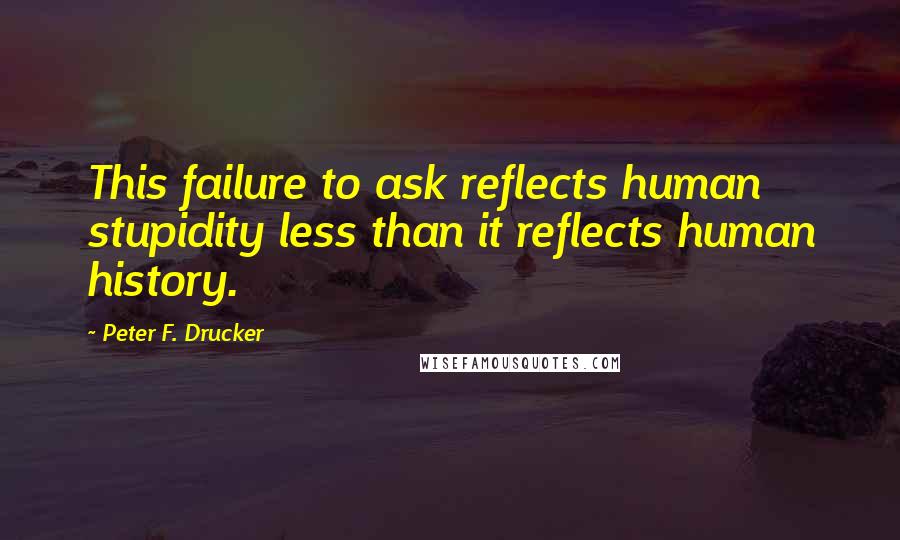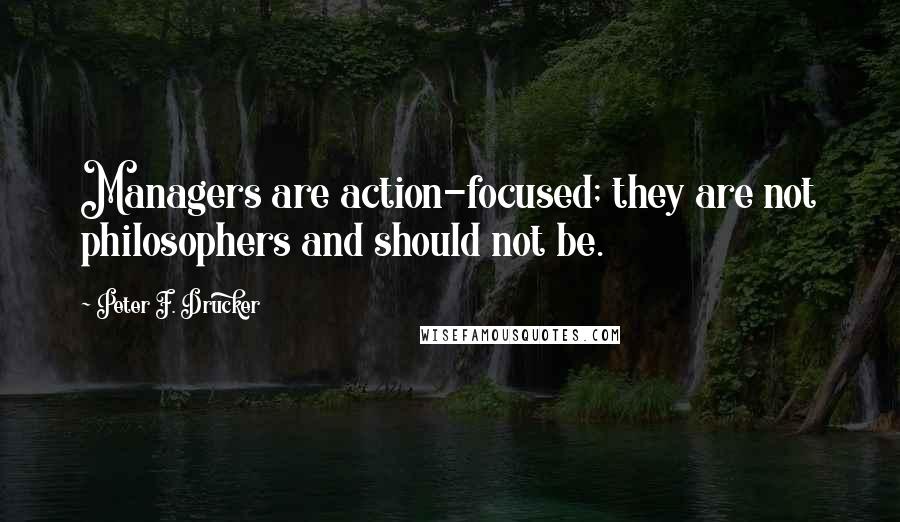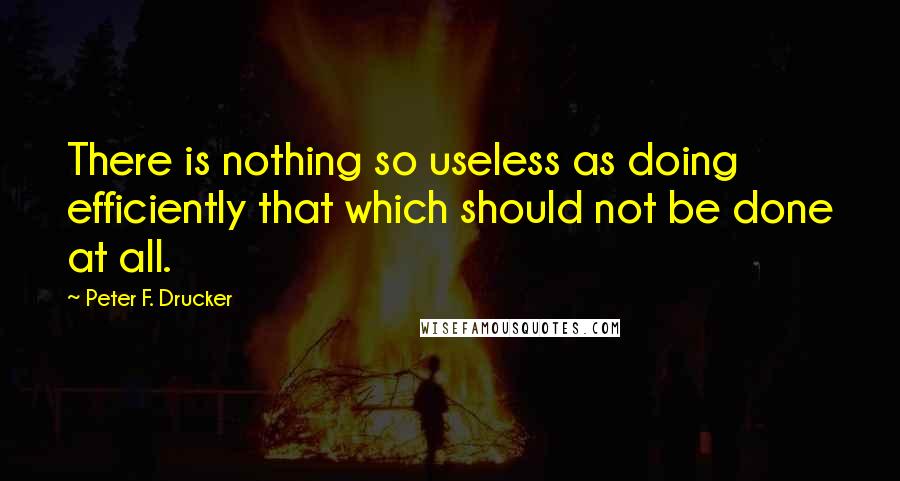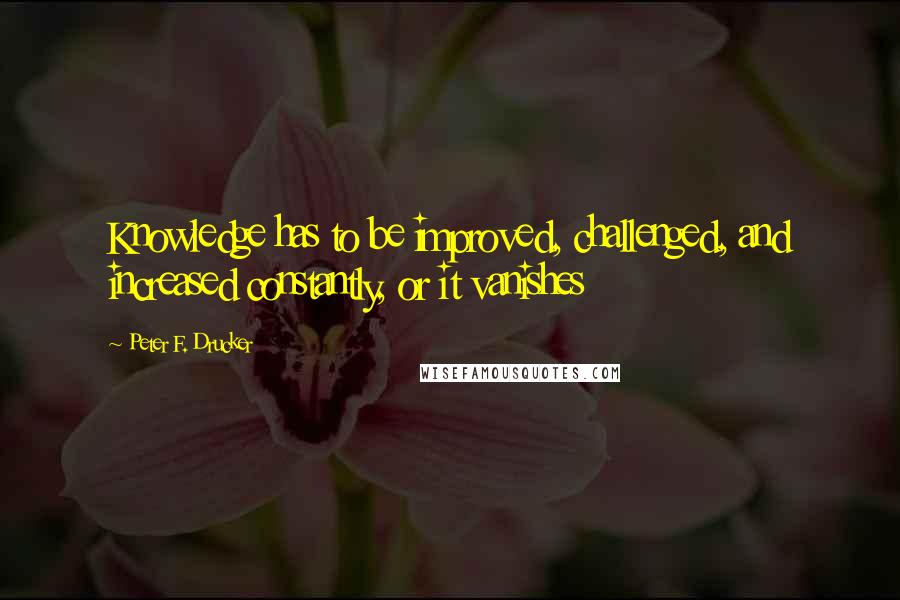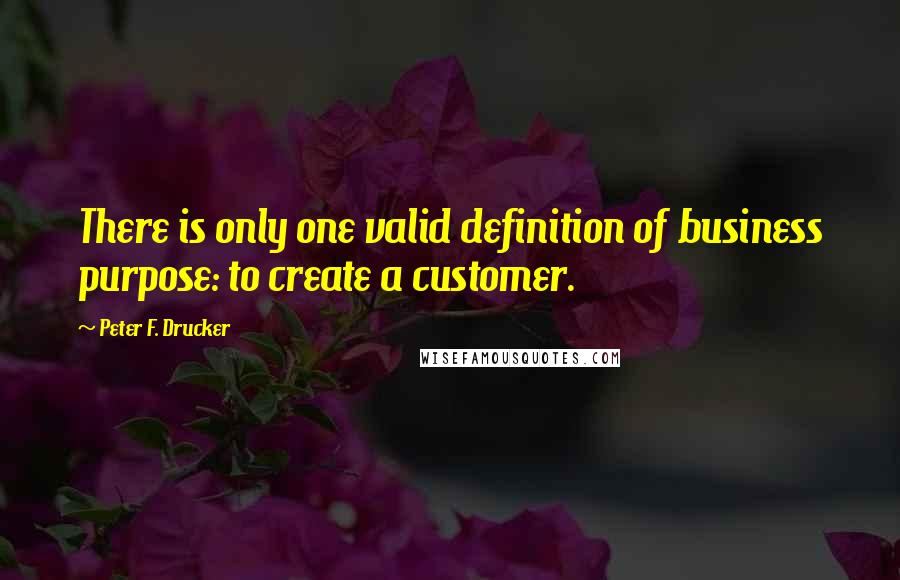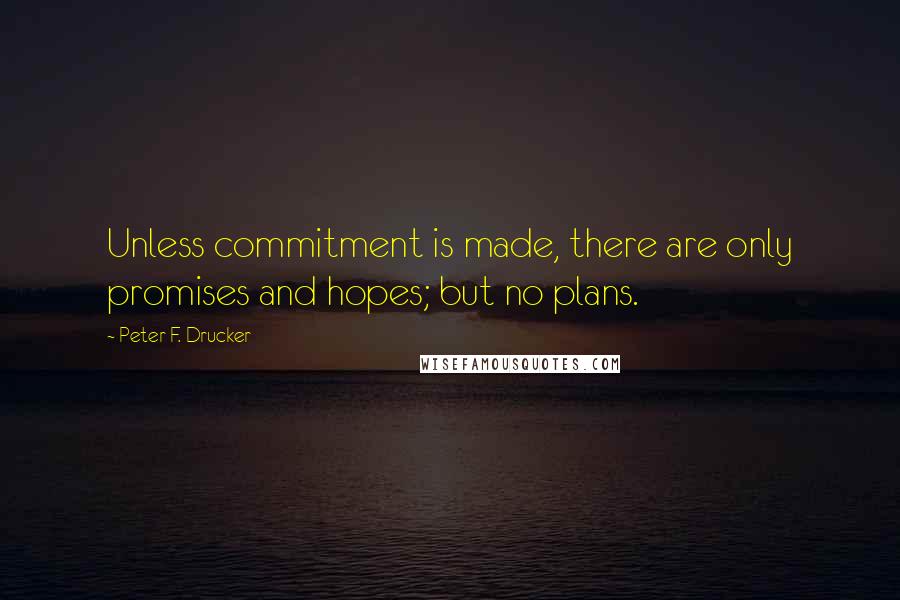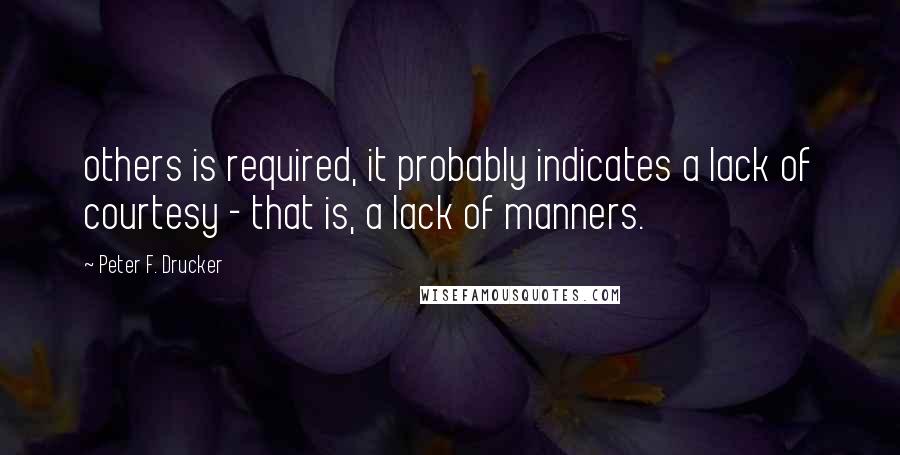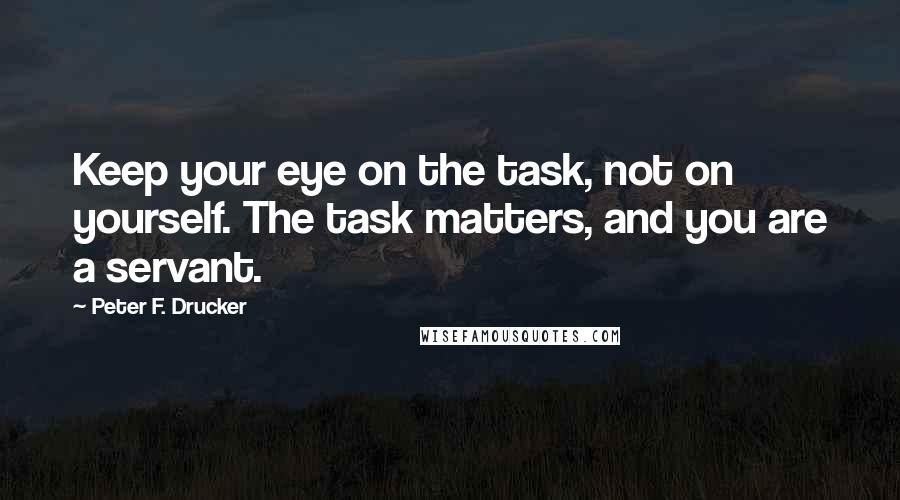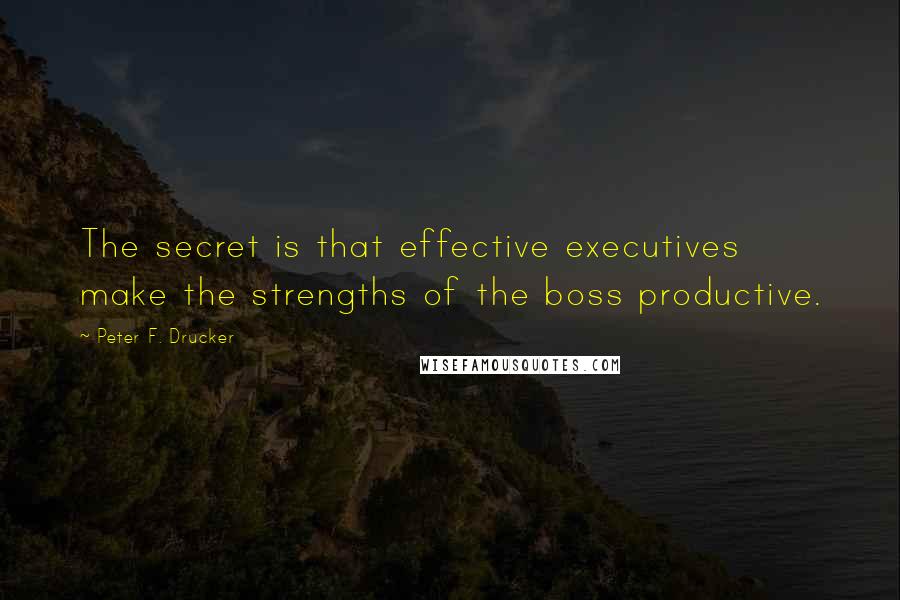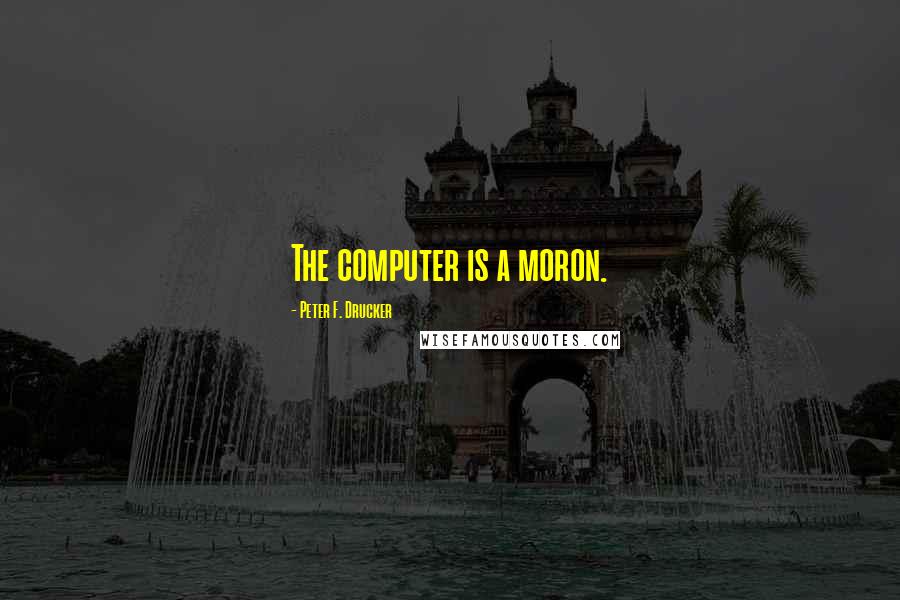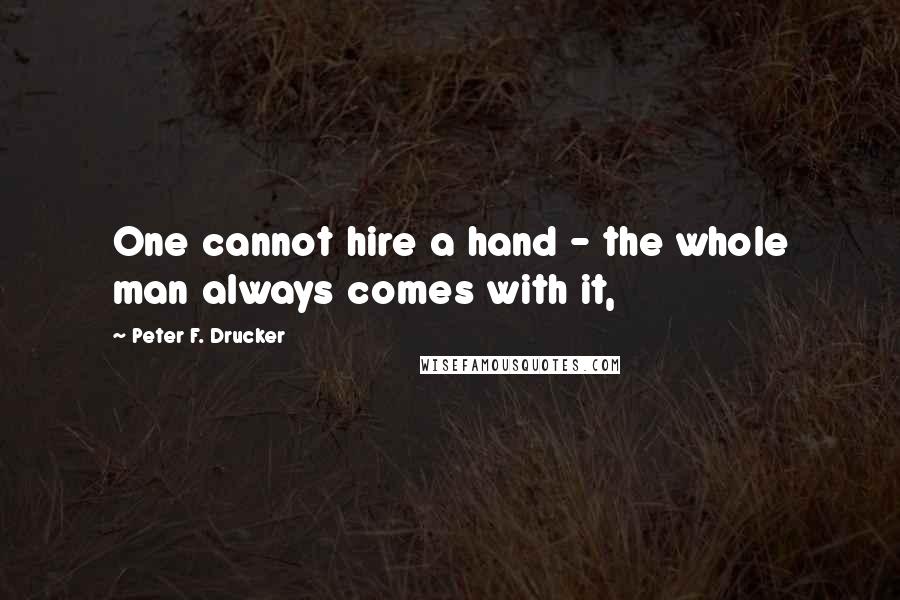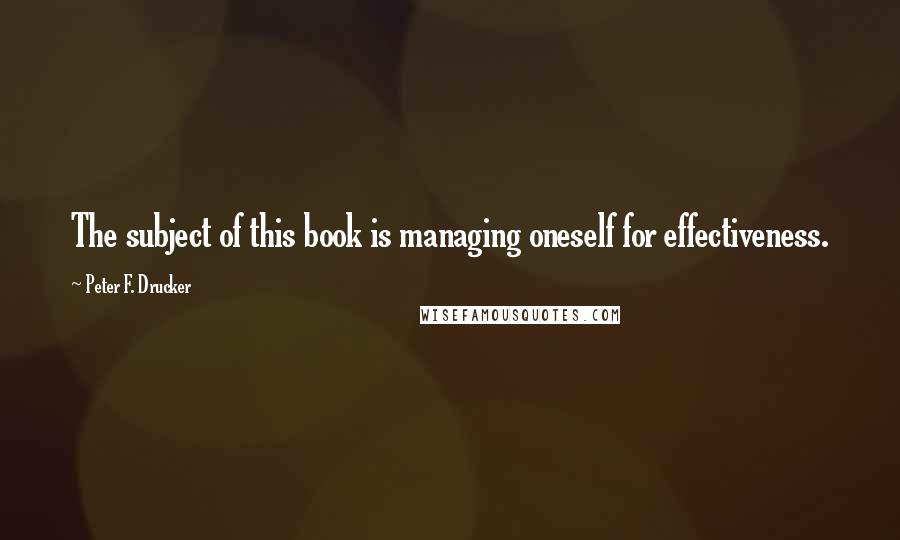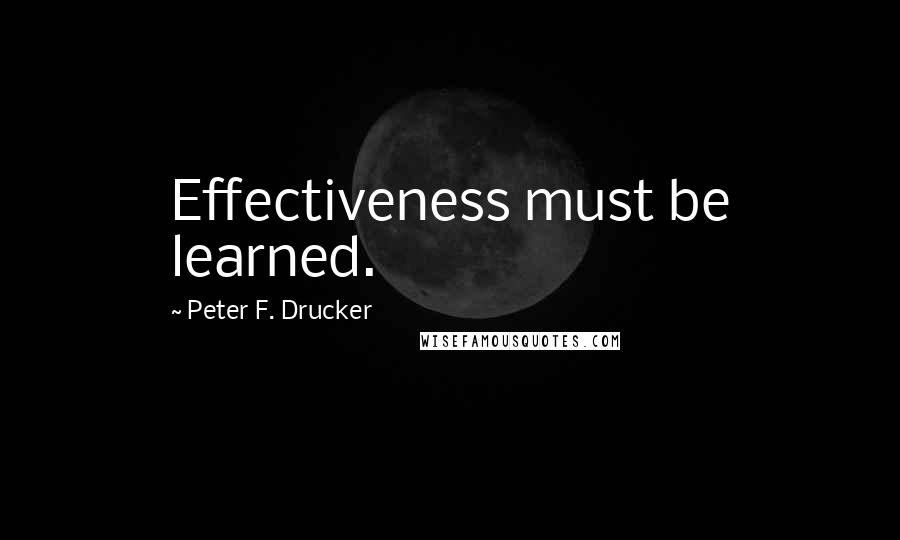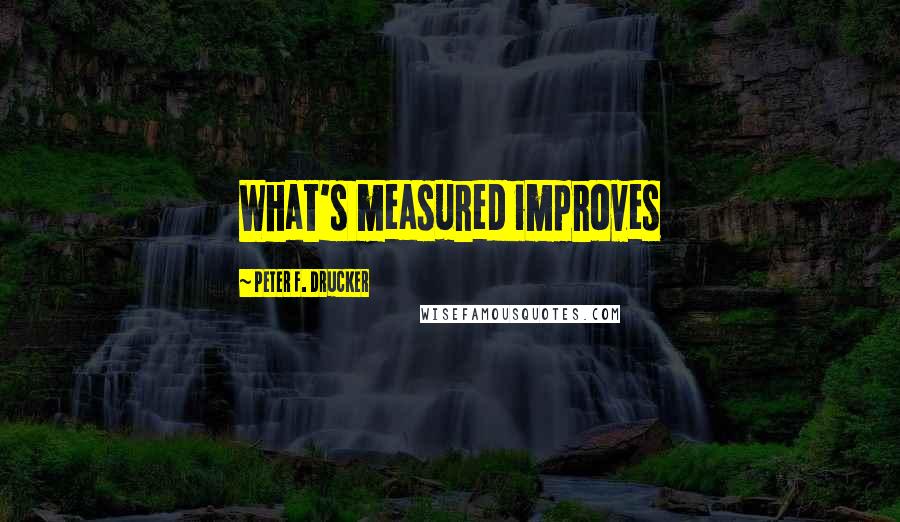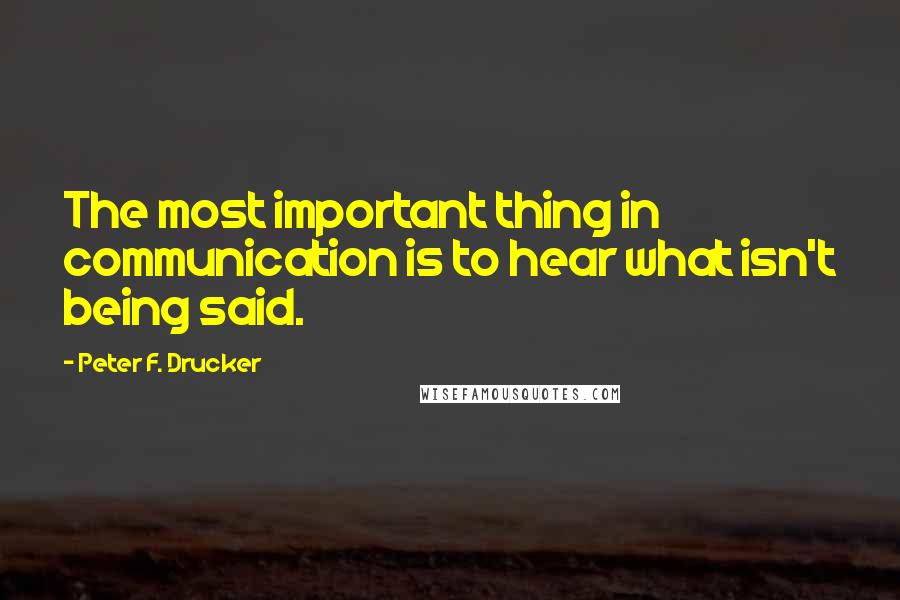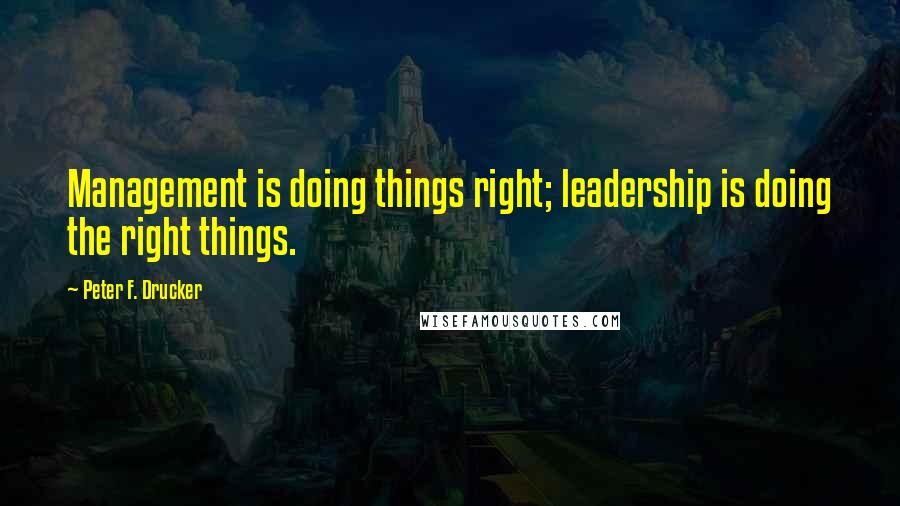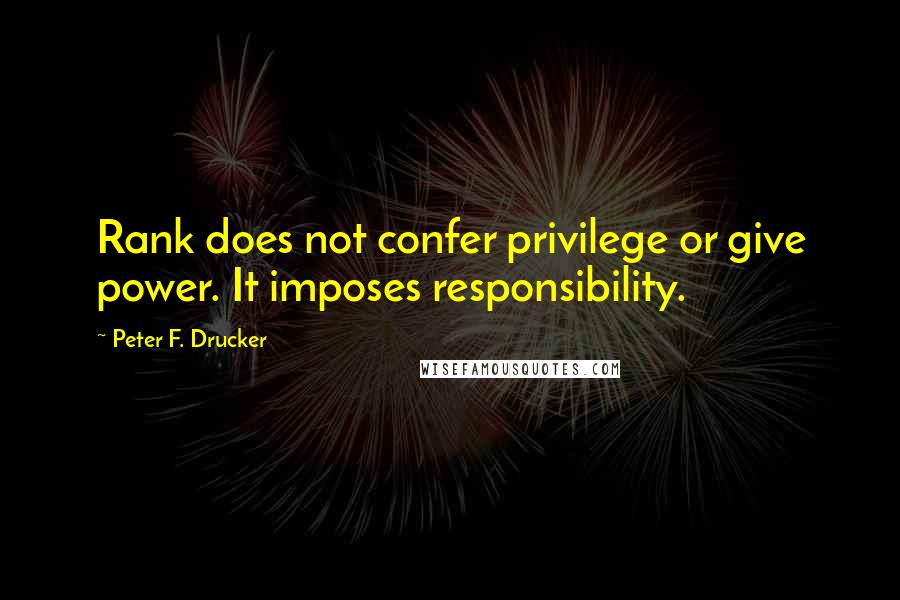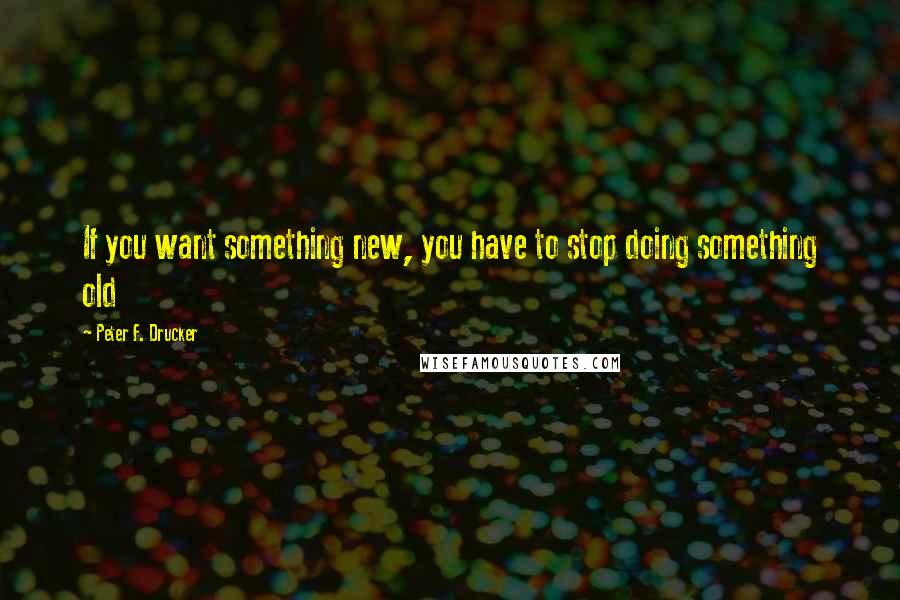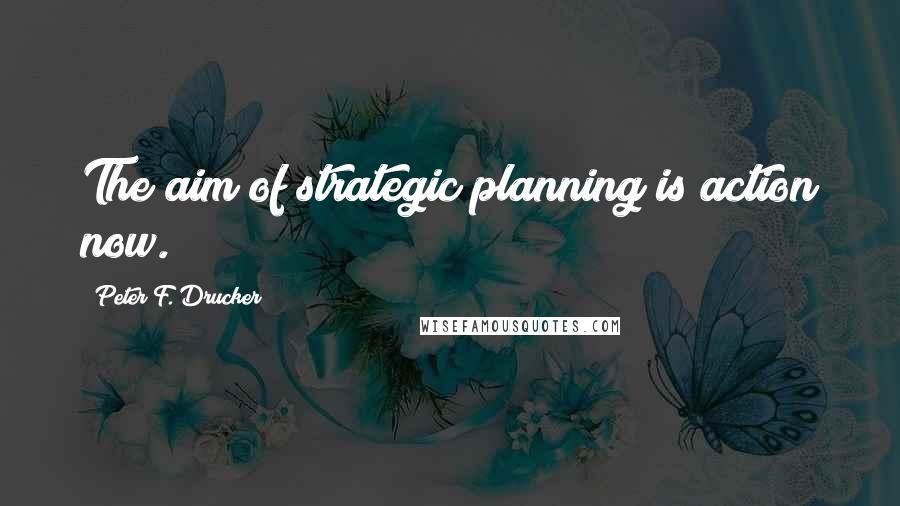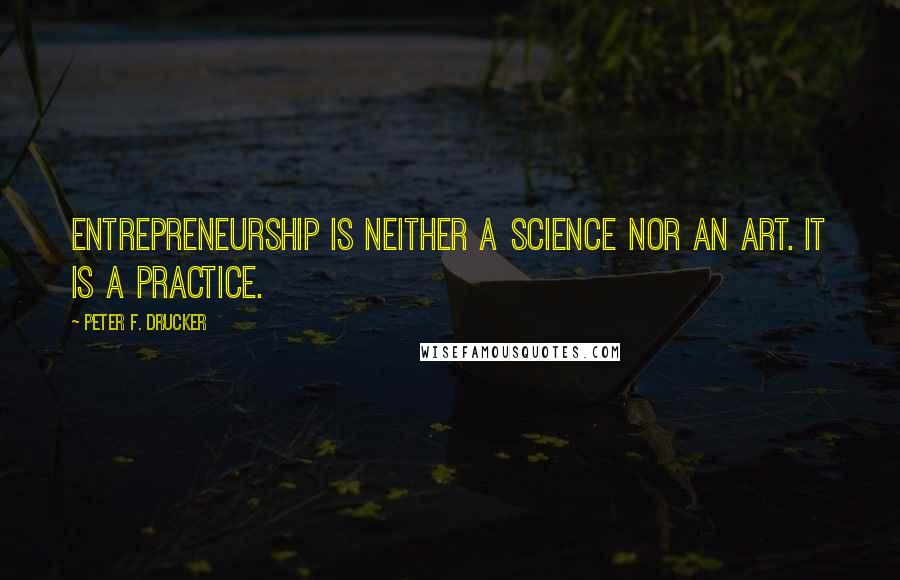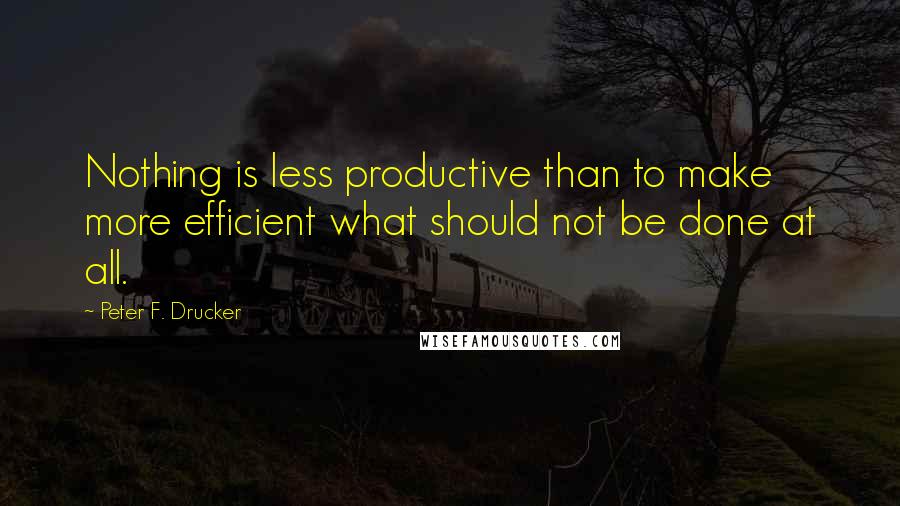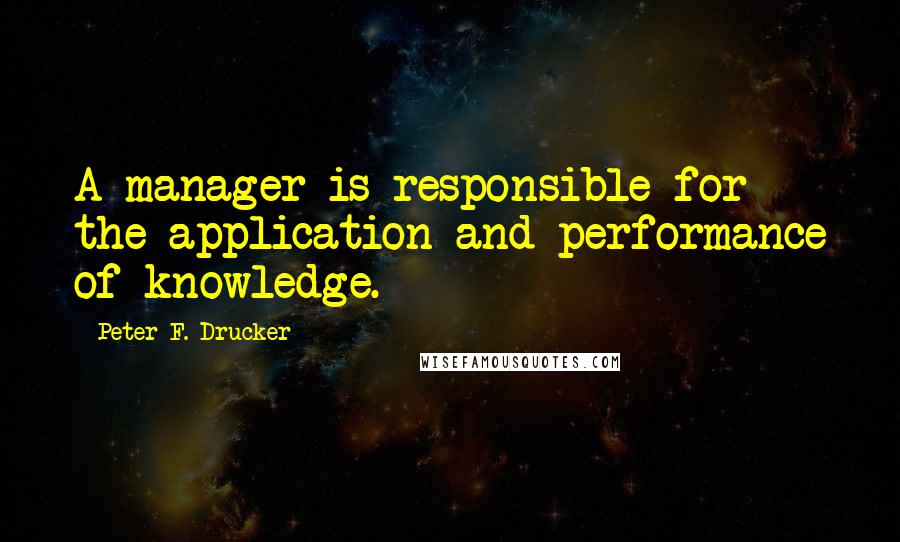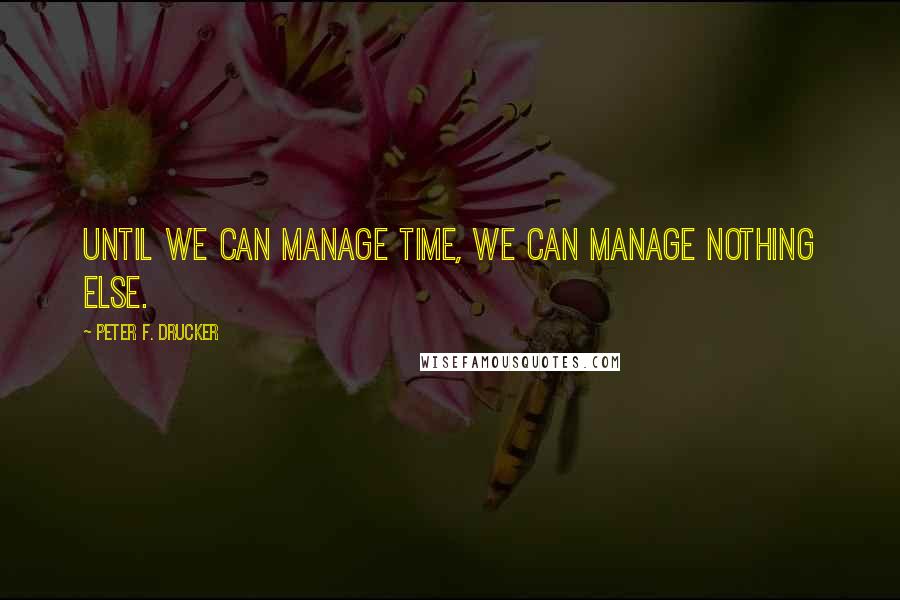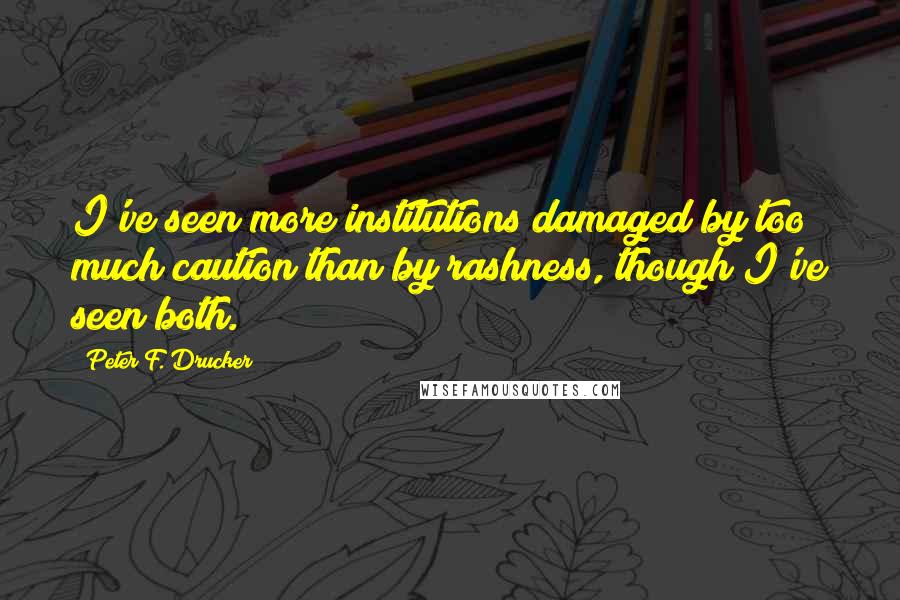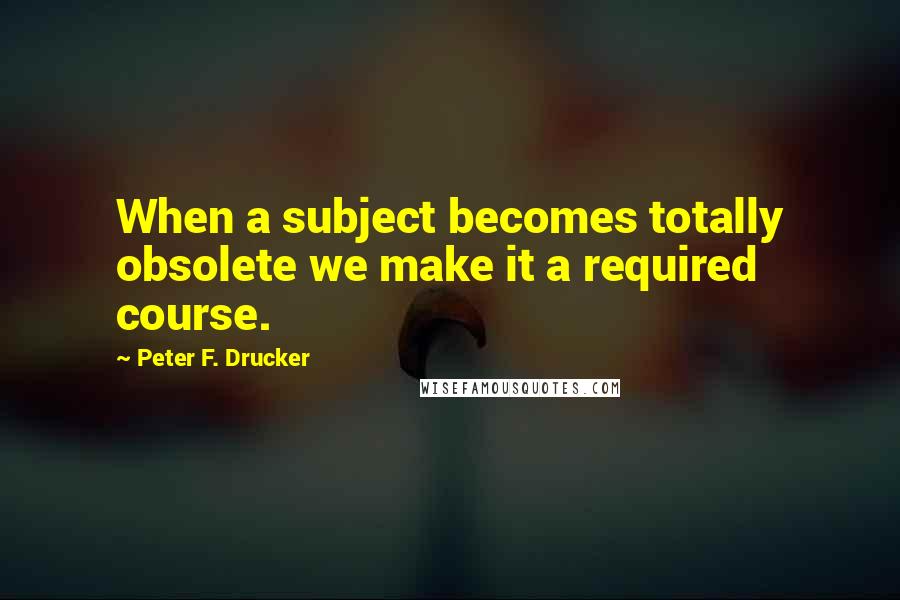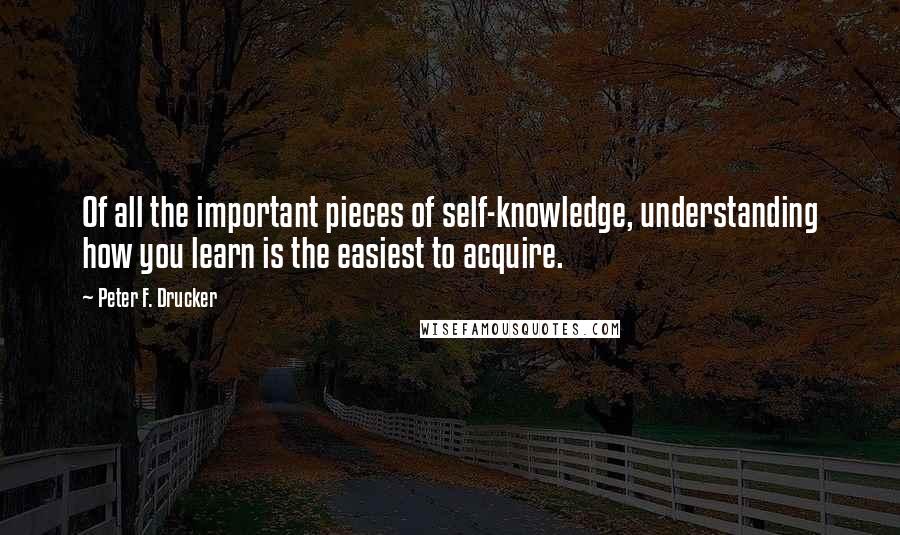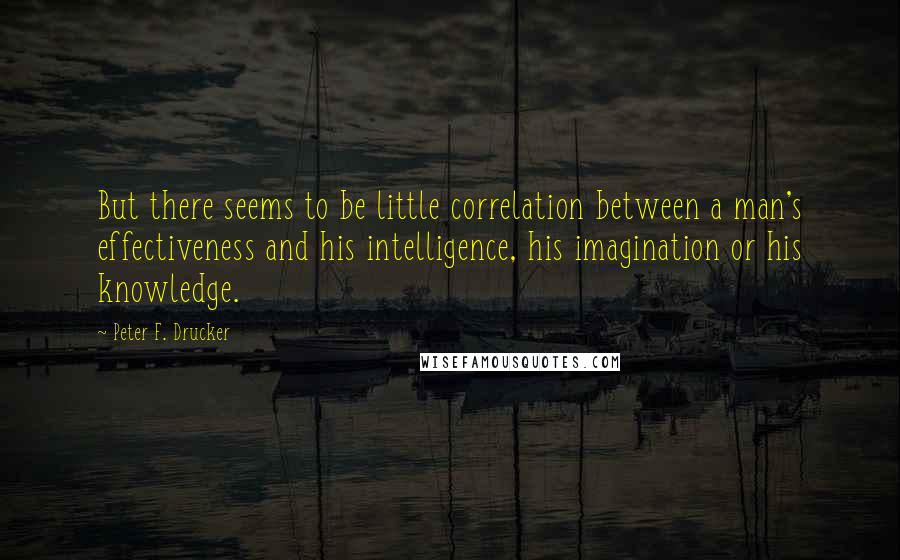Peter F. Drucker Quotes
Top 77 wise famous quotes and sayings by Peter F. Drucker
Peter F. Drucker Famous Quotes & Sayings
Discover top inspirational quotes from Peter F. Drucker on Wise Famous Quotes.
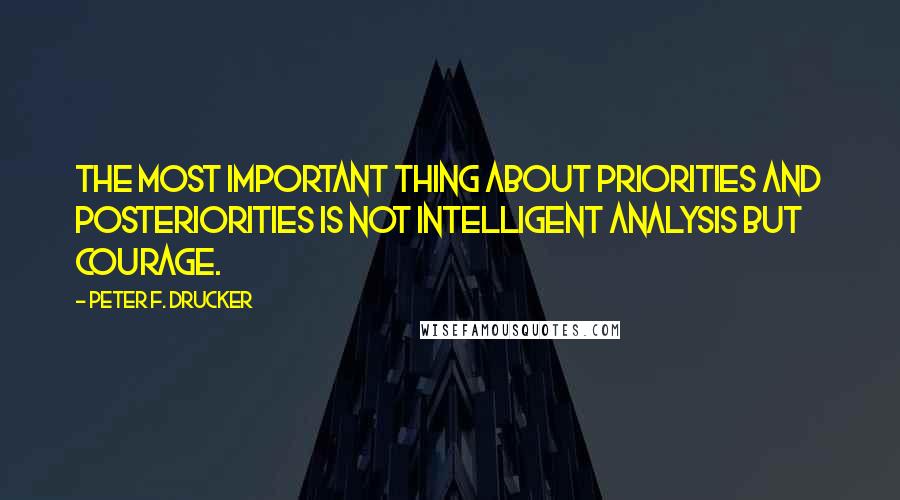 The most important thing about priorities and posteriorities is not intelligent analysis but courage.
The most important thing about priorities and posteriorities is not intelligent analysis but courage.
 The assertion that "somebody else will not let me do anything" should always be suspected as a cover-up for inertia.
The assertion that "somebody else will not let me do anything" should always be suspected as a cover-up for inertia.
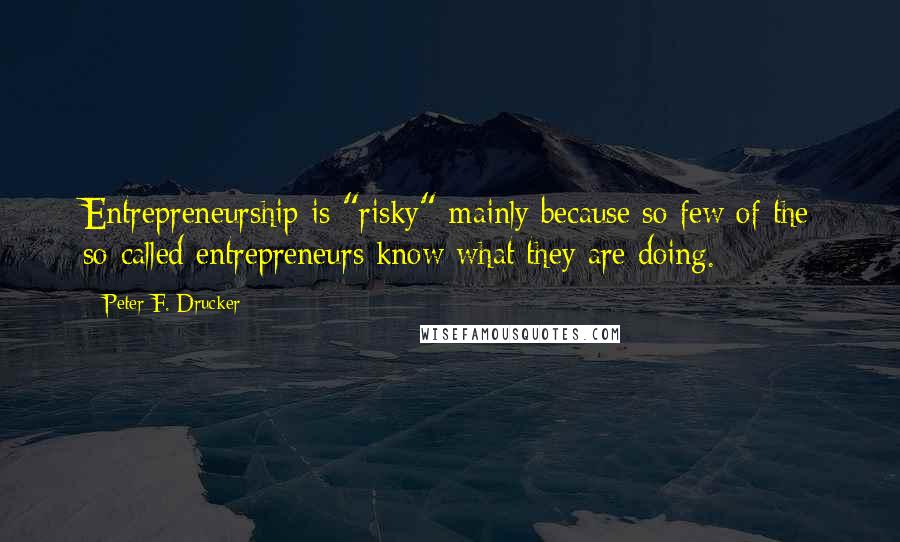 Entrepreneurship is "risky" mainly because so few of the so-called entrepreneurs know what they are doing.
Entrepreneurship is "risky" mainly because so few of the so-called entrepreneurs know what they are doing.
 The problem in my life and other people's lives is not the absence of knowing what to do but the absence of doing it.
The problem in my life and other people's lives is not the absence of knowing what to do but the absence of doing it.
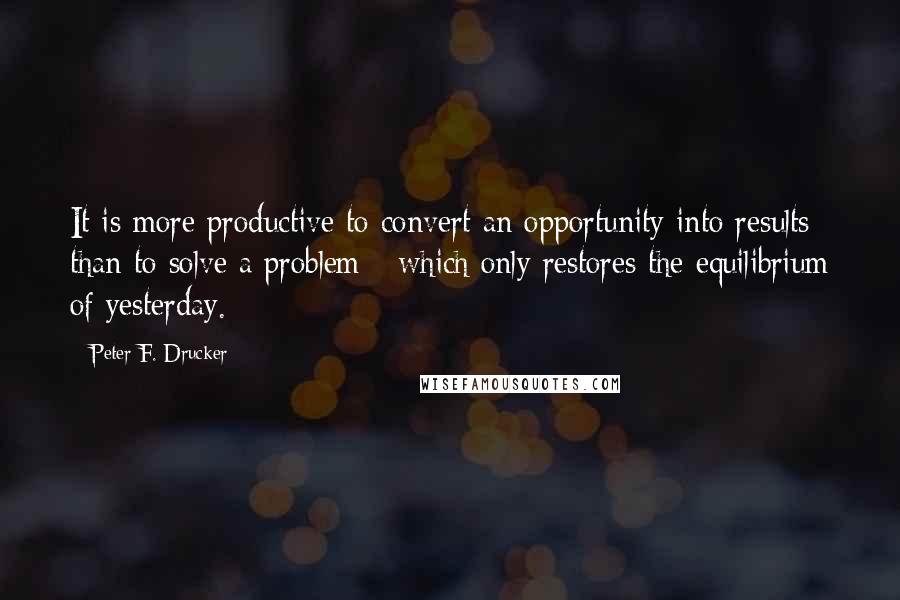 It is more productive to convert an opportunity into results than to solve a problem - which only restores the equilibrium of yesterday.
It is more productive to convert an opportunity into results than to solve a problem - which only restores the equilibrium of yesterday.
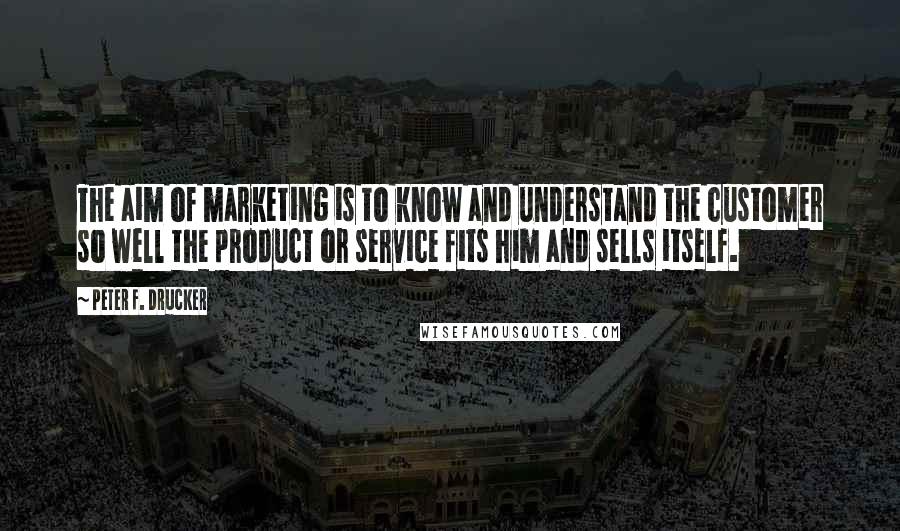 The aim of marketing is to know and understand the customer so well the
The aim of marketing is to know and understand the customer so well the product or service fits him and sells itself.
 The most serious mistakes are not being made as a result of wrong answers.
The most serious mistakes are not being made as a result of wrong answers.The true dangerous thing is asking the wrong question.
 Effective executives know that their subordinates are paid to perform and not to please their superiors.
Effective executives know that their subordinates are paid to perform and not to please their superiors.
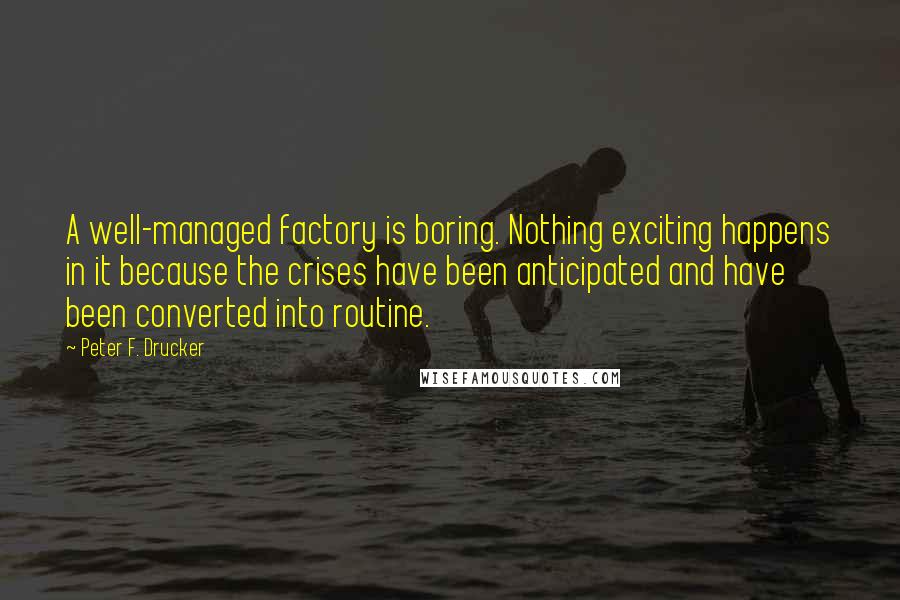 A well-managed factory is boring. Nothing exciting happens in it because the crises have been anticipated and have been converted into routine.
A well-managed factory is boring. Nothing exciting happens in it because the crises have been anticipated and have been converted into routine.
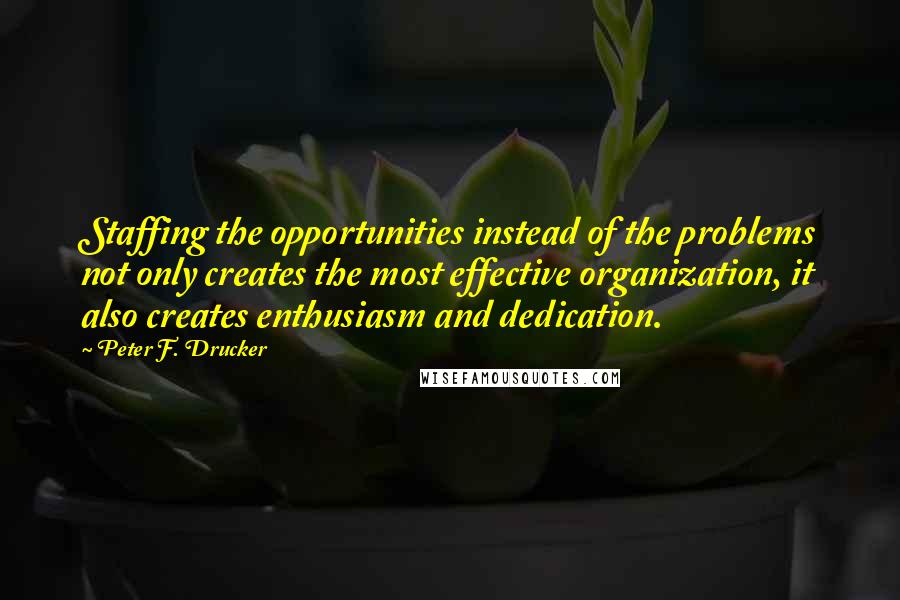 Staffing the opportunities instead of the problems not only creates the most effective organization, it also creates enthusiasm and dedication.
Staffing the opportunities instead of the problems not only creates the most effective organization, it also creates enthusiasm and dedication.
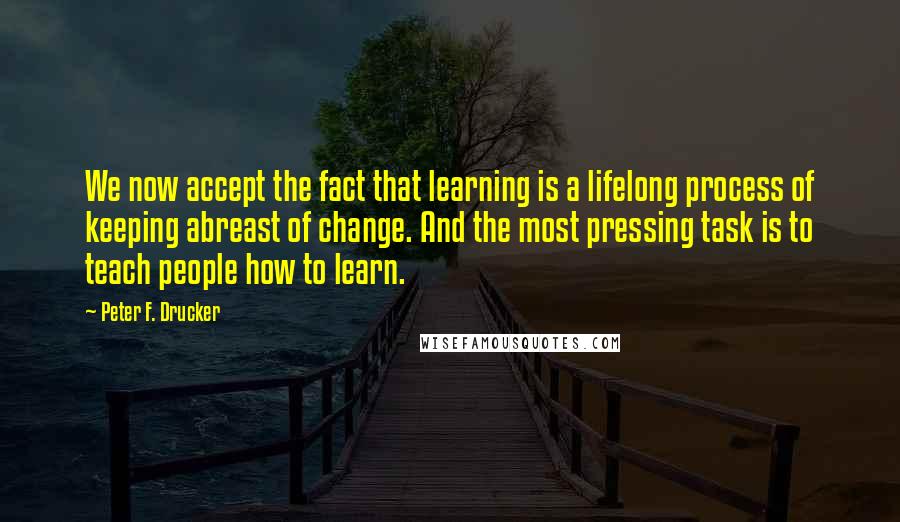 We now accept the fact that learning is a lifelong process of keeping abreast of change. And the most pressing task is to teach people how to learn.
We now accept the fact that learning is a lifelong process of keeping abreast of change. And the most pressing task is to teach people how to learn.
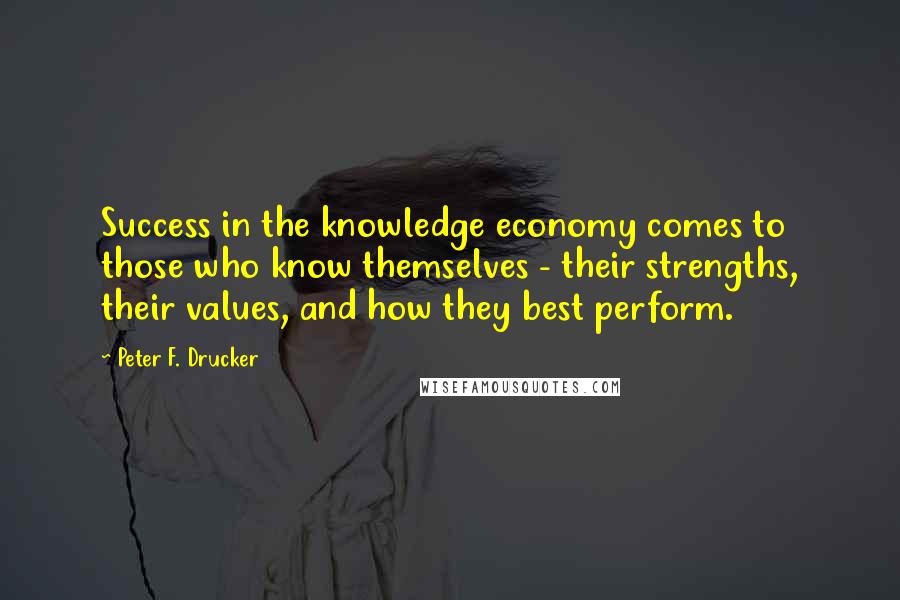 Success in the knowledge economy comes to those who know themselves - their strengths, their values, and how they best perform.
Success in the knowledge economy comes to those who know themselves - their strengths, their values, and how they best perform.
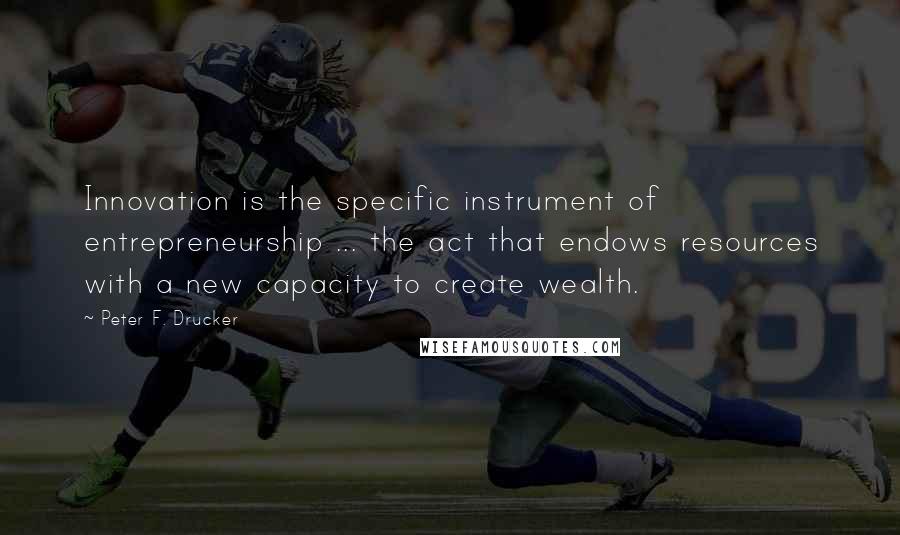 Innovation is the specific instrument of entrepreneurship ... the act that endows resources with a new capacity to create wealth.
Innovation is the specific instrument of entrepreneurship ... the act that endows resources with a new capacity to create wealth.
 Only a clear, focused, and common mission can hold the organization together and enable it to produce results.
Only a clear, focused, and common mission can hold the organization together and enable it to produce results.
 Two hundred people, of course, can do a great deal more work than one man. But it does not follow that they produce and contribute more.
Two hundred people, of course, can do a great deal more work than one man. But it does not follow that they produce and contribute more.
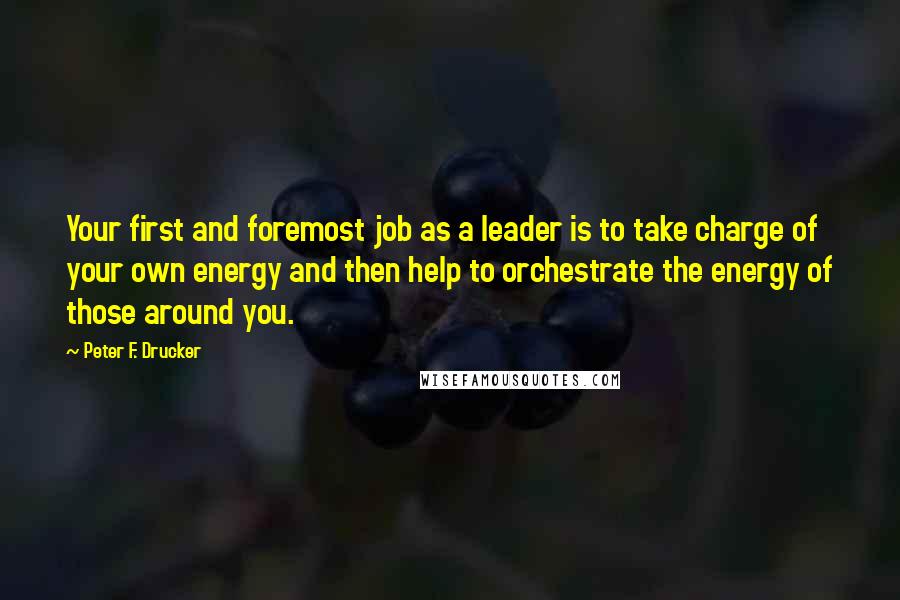 Your first and foremost job as a leader is to take charge of your own energy and then help to orchestrate the energy of those around you.
Your first and foremost job as a leader is to take charge of your own energy and then help to orchestrate the energy of those around you.
 A person can perform only from strength. One cannot build performance on weakness, let alone on something one cannot do at all.
A person can perform only from strength. One cannot build performance on weakness, let alone on something one cannot do at all.
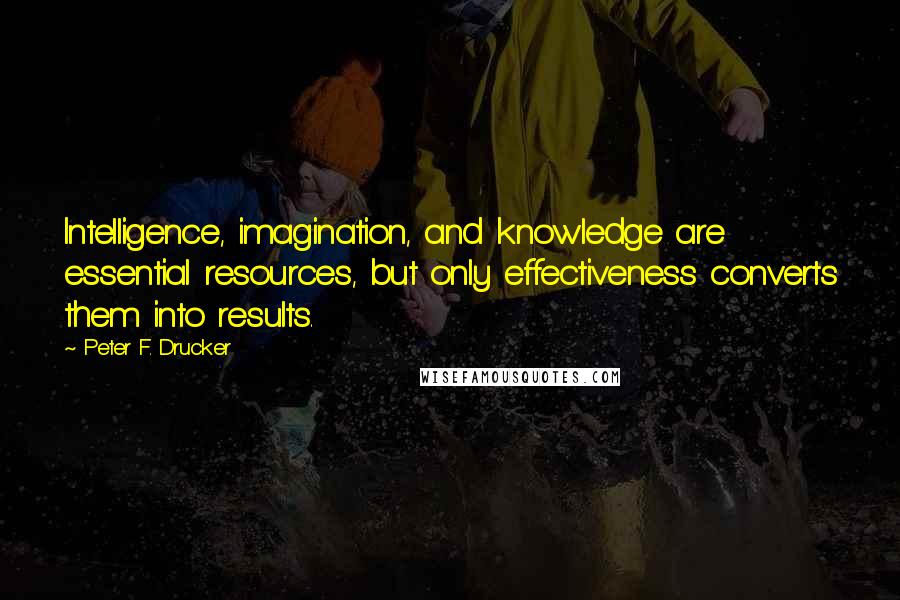 Intelligence, imagination, and knowledge are essential resources, but only effectiveness converts them into results.
Intelligence, imagination, and knowledge are essential resources, but only effectiveness converts them into results.
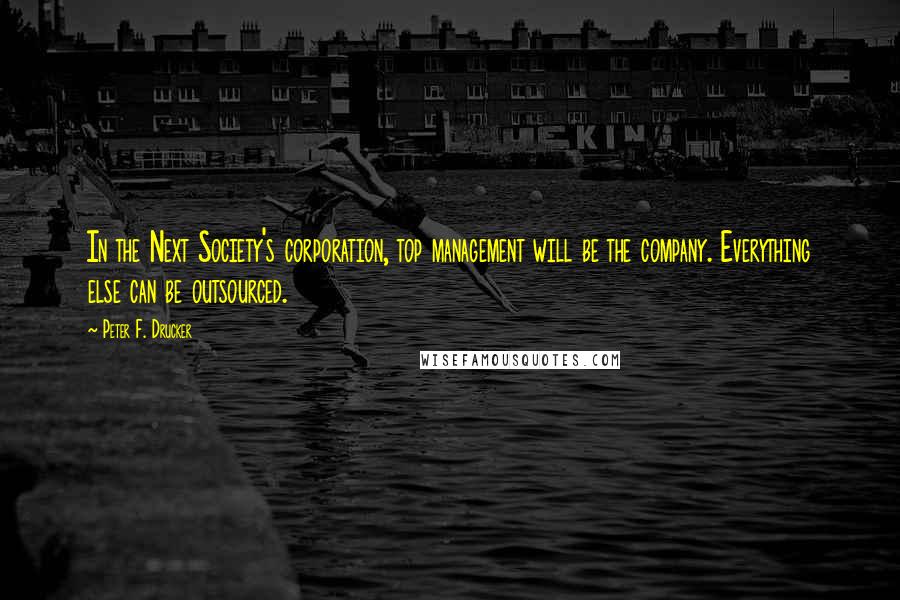 In the Next Society's corporation, top management will be the company. Everything else can be outsourced.
In the Next Society's corporation, top management will be the company. Everything else can be outsourced.
 If there is any one "secret" of effectiveness, it is concentration. Effective executives do first things first and they do one thing at a time.
If there is any one "secret" of effectiveness, it is concentration. Effective executives do first things first and they do one thing at a time.
 Trying to predict the future is like trying to drive down a country road at night with no lights while looking out the back window.
Trying to predict the future is like trying to drive down a country road at night with no lights while looking out the back window.
 1. What is our mission? 2. Who is our customer? 3. What does the customer value? 4. What are our results? 5. What is our plan?2
1. What is our mission? 2. Who is our customer? 3. What does the customer value? 4. What are our results? 5. What is our plan?2
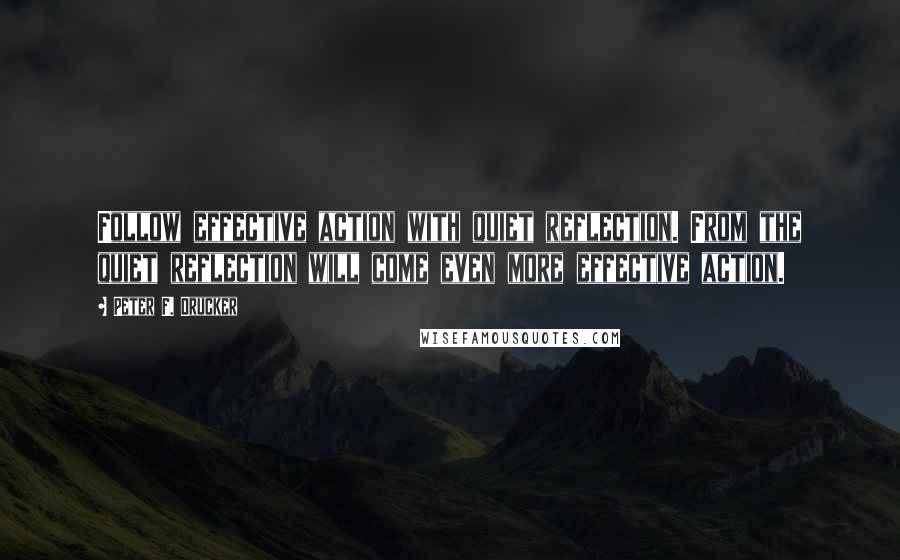 Follow effective action with quiet reflection. From the quiet reflection will come even more effective action.
Follow effective action with quiet reflection. From the quiet reflection will come even more effective action.
 2. Don't diversify, don't splinter, don't try to do too many things at once. This is, of course, the corollary to the 'do': be focused!
2. Don't diversify, don't splinter, don't try to do too many things at once. This is, of course, the corollary to the 'do': be focused!
 There is surely nothing quite so useless as doing with great efficiency what should not be done at all.
There is surely nothing quite so useless as doing with great efficiency what should not be done at all.
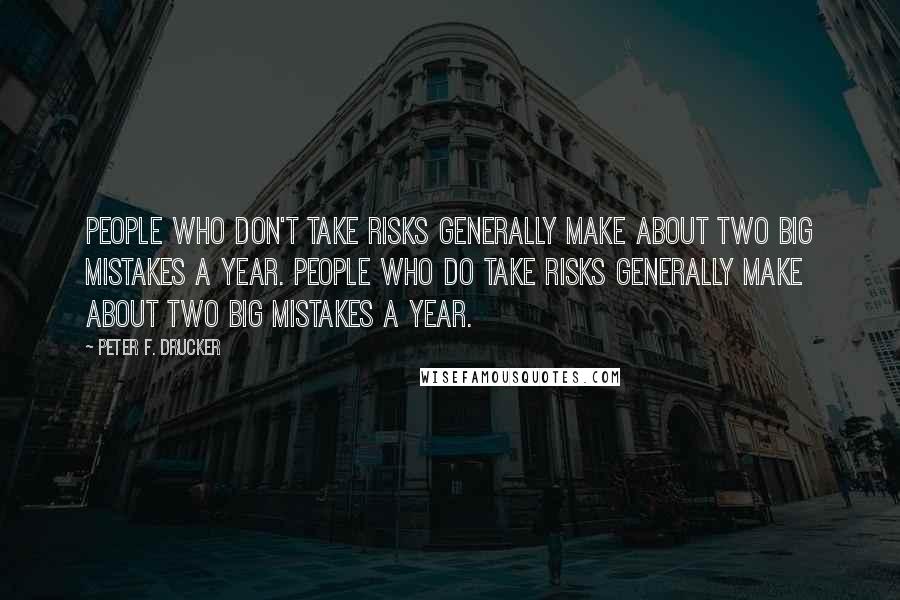 People who don't take risks generally make about two big mistakes a year. People who do take risks generally make about two big mistakes a year.
People who don't take risks generally make about two big mistakes a year. People who do take risks generally make about two big mistakes a year.
 To make knowledge productive, we will have to learn to see both forest and tree. We will have to learn to connect.
To make knowledge productive, we will have to learn to see both forest and tree. We will have to learn to connect.
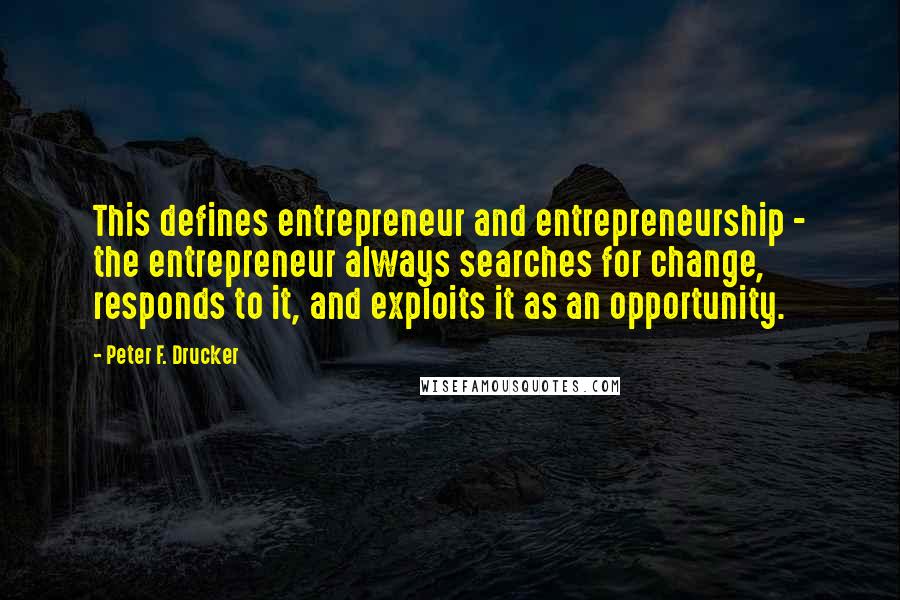 This defines entrepreneur and entrepreneurship - the entrepreneur always searches for change, responds to it, and exploits it as an opportunity.
This defines entrepreneur and entrepreneurship - the entrepreneur always searches for change, responds to it, and exploits it as an opportunity.
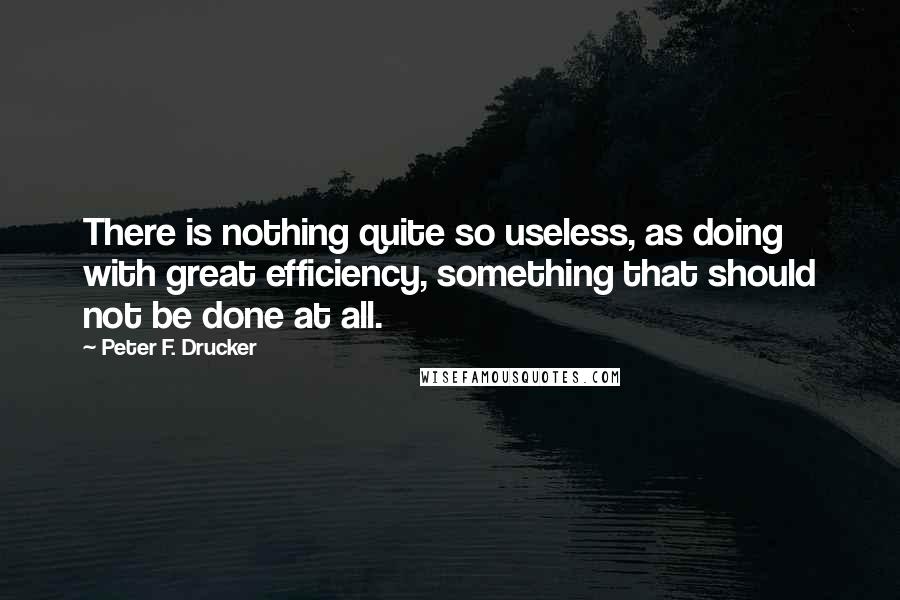 There is nothing quite so useless, as doing with great efficiency, something that should not be done at all.
There is nothing quite so useless, as doing with great efficiency, something that should not be done at all.
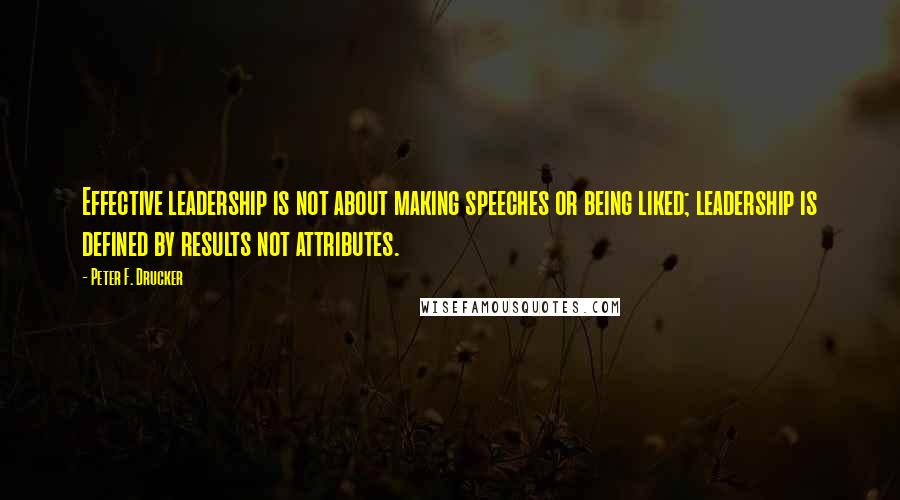 Effective leadership is not about making speeches or being liked; leadership is defined by results not attributes.
Effective leadership is not about making speeches or being liked; leadership is defined by results not attributes.
 Meetings are by definition a concession to deficient organization For one either meets or one works. One cannot do both at the same time.
Meetings are by definition a concession to deficient organization For one either meets or one works. One cannot do both at the same time.
 What is our mission? Who is our customer? What does the customer value? What are our results? and What is our plan?
What is our mission? Who is our customer? What does the customer value? What are our results? and What is our plan?
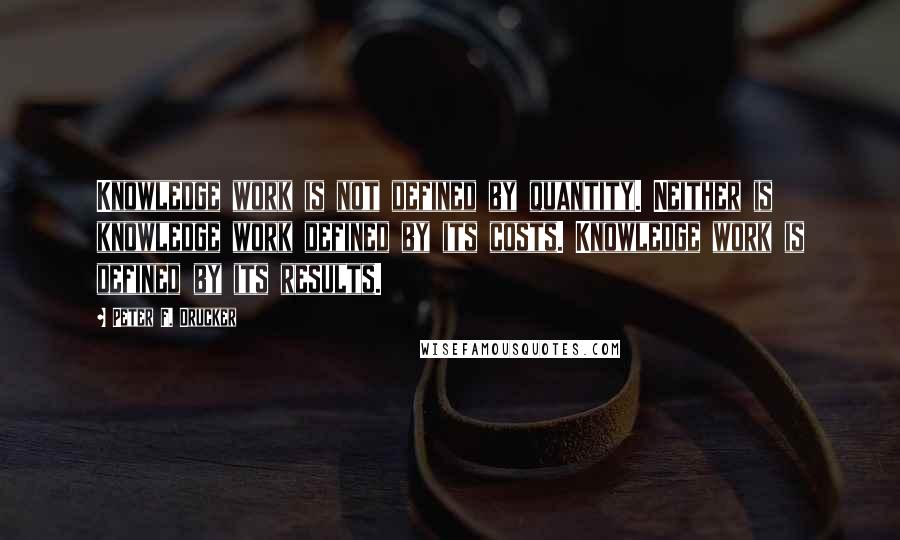 Knowledge work is not defined by quantity. Neither is knowledge work defined by its costs. Knowledge work is defined by its results.
Knowledge work is not defined by quantity. Neither is knowledge work defined by its costs. Knowledge work is defined by its results.


